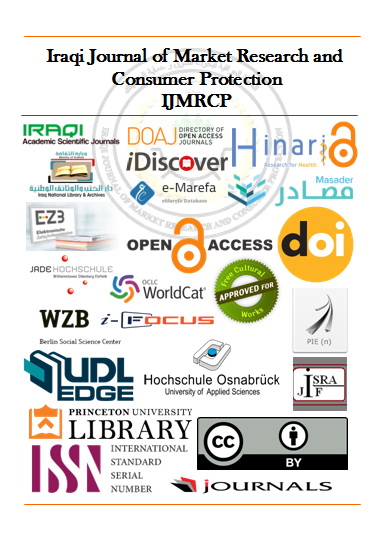EXPLORING STREPTOCOCCAL MICROBIOTA AS POTENTIAL INDICATORS FOR PROGRESSION OF PERIODONTAL DISEASES
EXPLORING STREPTOCOCCAL MICROBIOTA AS POTENTIAL INDICATORS FOR PROGRESSION OF PERIODONTAL DISEASES
Keywords:
Dysbiosis, Oral Diseases, Periodontitis, Oral Hygiene, Streptococcus thoraltensis.Abstract
A disturbance in the equilibrium of oral microbiota may represent a leading cause of poor oral hygiene. Dysbiosis of the microbiota is the main cause of inflammatory illnesses, known as periodontitis. Communication between Streptococcus spp. and other oral bacteria could be relevant, and therefore, indicators of different forms of periodontitis. The current study aimed to investigate the association between certain Streptococcus spp. with poor oral health and developing periodontal disorders. A total of 166 samples were collected from individuals attending Ghazi Al-Hariri Hospital for Surgical Specialties and Specialized Dental Centers in Baghdad, Iraq. S. mutans, S. sanguis, S. thoraltensis, S. infantarius, Aggregatibacter actinomycetemcomitans, Bifidobacterium spp. have been surveyed and identified in 166 individuals using VITEK 2 system. The results approved that the Streptococcus spp. colonisation have strong significant correlations with a certain periodontal disease alongside its relationship with other bacterial species. Mainly, infectious Streptococcus sanguis is significantly associated with gingivitis (rho = 0.239**, p= 0.002), but inversely corelated with acute periodontitis (rho= -0.165*, p= 0.034). Moreover, Streptococcus mutans is inversely associated with the chronic periodontitis (rho= -0.155*, p= 0.046) and significantly with dental caries & pulpitis (rho= 0.252**, p= 0.001). Streptococcus infantarius significantly correlates with chronic periodontitis (rho = -0.183*, p= 0.018) and inversely associated with the oral hygiene status. The findings indicate that streptococcal microbiota act as potential indicators for developing a range of periodontal diseases forms. However, the aggressive periodontitis was associated with Aggregatibacter actinomycetemcomitans. The findings suggest that further investigation of molecular oral microbiome is required to uncover their potency to develop the severity of oral diseases.
Downloads
Published
Issue
Section
License
Copyright (c) 2025 Iraqi Journal of Market Research and Consumer Protection

This work is licensed under a Creative Commons Attribution 4.0 International License.





